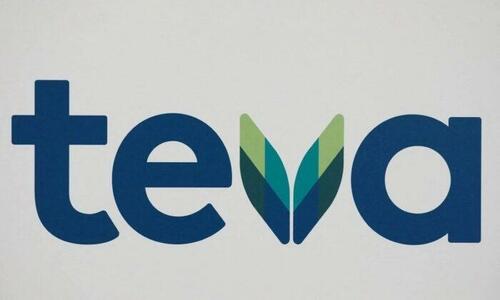Teva Pharmaceuticals USA Inc. and Teva Neuroscience Inc. (collectively, Teva) have agreed to pay $450 million to resolve allegations that they violated the Anti-Kickback Statute (AKS) and the False Claims Act (FCA), according to the U.S. Department of Justice (DOJ).
Teva is an Israeli company, with U.S. headquarters in Parsippany, New Jersey, and is the largest generic drug manufacturer in the United States, according to the DOJ.
The settlement amount was based on Teva’s ability to pay, the DOJ said.
As Chase Smith details below, via The Epoch Times, the settlement addresses two alleged kickback schemes.
First, Teva allegedly violated and conspired to violate the AKS and FCA by covering Medicare patients’ copays for the multiple sclerosis drug Copaxone from 2006 through 2017, while steadily increasing the drug’s price.
The DOJ alleged that Teva coordinated with a specialty pharmacy and two purportedly independent copay assistance foundations to ensure donations were used specifically to cover Copaxone copays for Medicare patients with multiple sclerosis, which is prohibited by law.
Second, Teva USA agreed to resolve separate allegations of conspiring with other generic drug manufacturers to fix prices for pravastatin—a widely used cholesterol medication—as well as clotrimazole and tobramycin.
Teva USA entered into a deferred prosecution agreement with the DOJ’s Antitrust Division last year, paying a criminal penalty of $225 million and admitting to conspiring with three other companies to fix prices on certain generic drugs.
The $450 million payment to resolve the allegations is in addition to the criminal penalty previously paid under the deferred prosecution agreement.
Under the civil settlement announced today, Teva agreed to resolve allegations that the benefits it received from the price-fixing scheme constituted illegal kickbacks.
“Kickbacks designed to induce referrals or purchases of healthcare goods or services distort physician and patient decision-making, thwart competition and bypass controls put in place to protect federal health care programs,” said Principal Deputy Assistant Attorney General Brian M. Boynton, head of the DOJ’s Civil Division.
“The Justice Department is committed to pursuing those who engage in kickback violations, including drug manufacturers, to ensure that federal health care programs continue to serve the interests of taxpayers and program beneficiaries.”
The settlement is the largest to date involving pharmaceutical companies allegedly using third-party foundations as conduits to unlawfully pay patient copays.
“Kickback arrangements by pharmaceutical companies escalate the costs for critical drugs used by our citizens and federal health care programs,” U.S. Attorney for the Eastern District of Pennsylvania Jacqueline Romero said.
“My office is proud to work with the rest of the Department of Justice and our investigative partners to enforce federal laws prohibiting kickback arrangements.”
Since 2017, the United States has collected more than $1 billion from pharmaceutical companies that allegedly used third-party foundations to unlawfully pay patient copays, in addition to today’s settlement, according to the DOJ.
The Epoch Times reached out to Teva USA for a response to the settlement but did not hear back before publication.
Teva Pharmaceuticals USA Inc. and Teva Neuroscience Inc. (collectively, Teva) have agreed to pay $450 million to resolve allegations that they violated the Anti-Kickback Statute (AKS) and the False Claims Act (FCA), according to the U.S. Department of Justice (DOJ).
Teva is an Israeli company, with U.S. headquarters in Parsippany, New Jersey, and is the largest generic drug manufacturer in the United States, according to the DOJ.
The settlement amount was based on Teva’s ability to pay, the DOJ said.
As Chase Smith details below, via The Epoch Times, the settlement addresses two alleged kickback schemes.
First, Teva allegedly violated and conspired to violate the AKS and FCA by covering Medicare patients’ copays for the multiple sclerosis drug Copaxone from 2006 through 2017, while steadily increasing the drug’s price.
The DOJ alleged that Teva coordinated with a specialty pharmacy and two purportedly independent copay assistance foundations to ensure donations were used specifically to cover Copaxone copays for Medicare patients with multiple sclerosis, which is prohibited by law.
Second, Teva USA agreed to resolve separate allegations of conspiring with other generic drug manufacturers to fix prices for pravastatin—a widely used cholesterol medication—as well as clotrimazole and tobramycin.
Teva USA entered into a deferred prosecution agreement with the DOJ’s Antitrust Division last year, paying a criminal penalty of $225 million and admitting to conspiring with three other companies to fix prices on certain generic drugs.
The $450 million payment to resolve the allegations is in addition to the criminal penalty previously paid under the deferred prosecution agreement.
Under the civil settlement announced today, Teva agreed to resolve allegations that the benefits it received from the price-fixing scheme constituted illegal kickbacks.
“Kickbacks designed to induce referrals or purchases of healthcare goods or services distort physician and patient decision-making, thwart competition and bypass controls put in place to protect federal health care programs,” said Principal Deputy Assistant Attorney General Brian M. Boynton, head of the DOJ’s Civil Division.
“The Justice Department is committed to pursuing those who engage in kickback violations, including drug manufacturers, to ensure that federal health care programs continue to serve the interests of taxpayers and program beneficiaries.”
The settlement is the largest to date involving pharmaceutical companies allegedly using third-party foundations as conduits to unlawfully pay patient copays.
“Kickback arrangements by pharmaceutical companies escalate the costs for critical drugs used by our citizens and federal health care programs,” U.S. Attorney for the Eastern District of Pennsylvania Jacqueline Romero said.
“My office is proud to work with the rest of the Department of Justice and our investigative partners to enforce federal laws prohibiting kickback arrangements.”
Since 2017, the United States has collected more than $1 billion from pharmaceutical companies that allegedly used third-party foundations to unlawfully pay patient copays, in addition to today’s settlement, according to the DOJ.
The Epoch Times reached out to Teva USA for a response to the settlement but did not hear back before publication.

